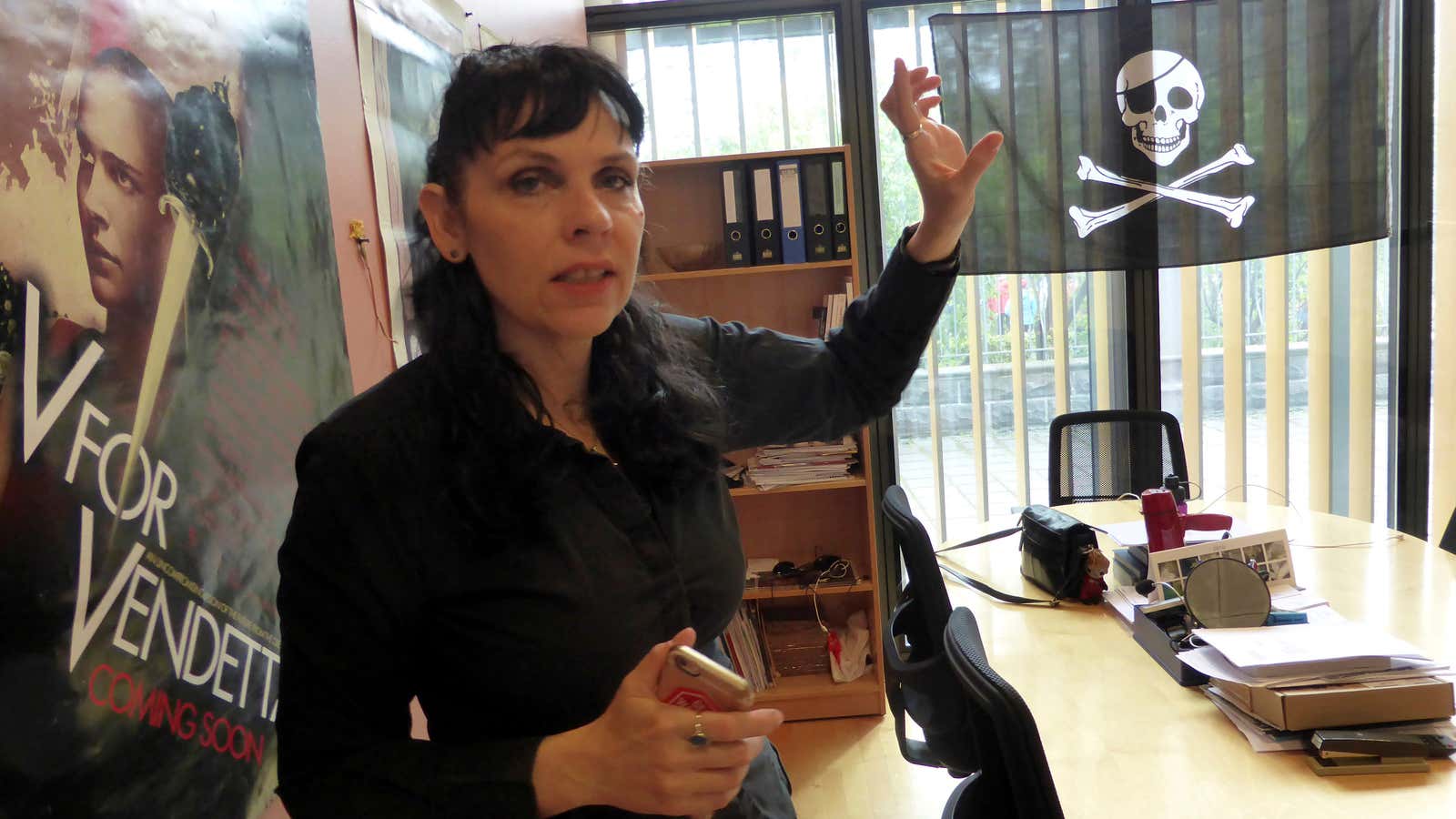If you’re worn out and depressed with the US election campaign, ponder what’s going on in Iceland for a moment. The country’s Pirate Party, founded less than four years ago by a group of activists, anarchists, and hackers, is poised to upend Icelandic politics with an Oct. 29 general-election victory.
More than 22% of Icelanders are ready to pick the anti-establishment Pirate Party, according to a recent poll by the Social Science Research Institute, conducted for the Morgunbladid newspaper. That puts the party just slightly head of its closest rival, the Independent Party, which currently governs in a coalition with the Progressive Party.
A win by the rogue band of radicals would be astonishing, but the young party—which champions direct democracy, transparency, and net neutrality—says it’s ready to take the reins. Its organizers already have created a crowdsourced draft of a new national constitution, which includes stipulations to re-nationalize the country’s natural-resource industries and to create new rules for civic governance.
The Pirate Party is led by 48-year-old Birgitta Jonsdottir, who describes herself as a “poetician.” Before co-founding the party, she did legal work for WikiLeaks.
If the Pirates indeed sail to victory, it’s not a given that Jonsdottir would take the job as the country’s next prime minister—she said earlier this year that she’d do it only if “nobody else can do it or wants to do it.” What’s more, the Pirates have said they will not form a coalition government with either of the two parties that currently form the government, but would seek an alliance with a number of smaller parties, like the Left-Greens and the Social Democratic Alliance (a more complicated proposition).
The Pirate Party’s mission is to be “the Robin Hood of Power,” by handing it back to the people. It’s an attractive promise in a country where a devastating crash during the 2008 financial crisis triggered a wave of resentment toward the establishment.
Things really started rolling for the Pirates when the Panama Papers leak earlier this year revealed that Iceland’s then-prime minister, Sigmundur Davíð Gunnlaugsson, and his wife had a secret offshore company. Thousands of people took to the streets to demand Gunnlaugsson’s resignation. The Panama Papers pushed the Pirate Party’s poll numbers to a peak of 43% in April.
Although the Pirate movement was founded 10 years ago in Sweden, and has since spread to other countries, Iceland is the only place where the party has a seat in the government.




